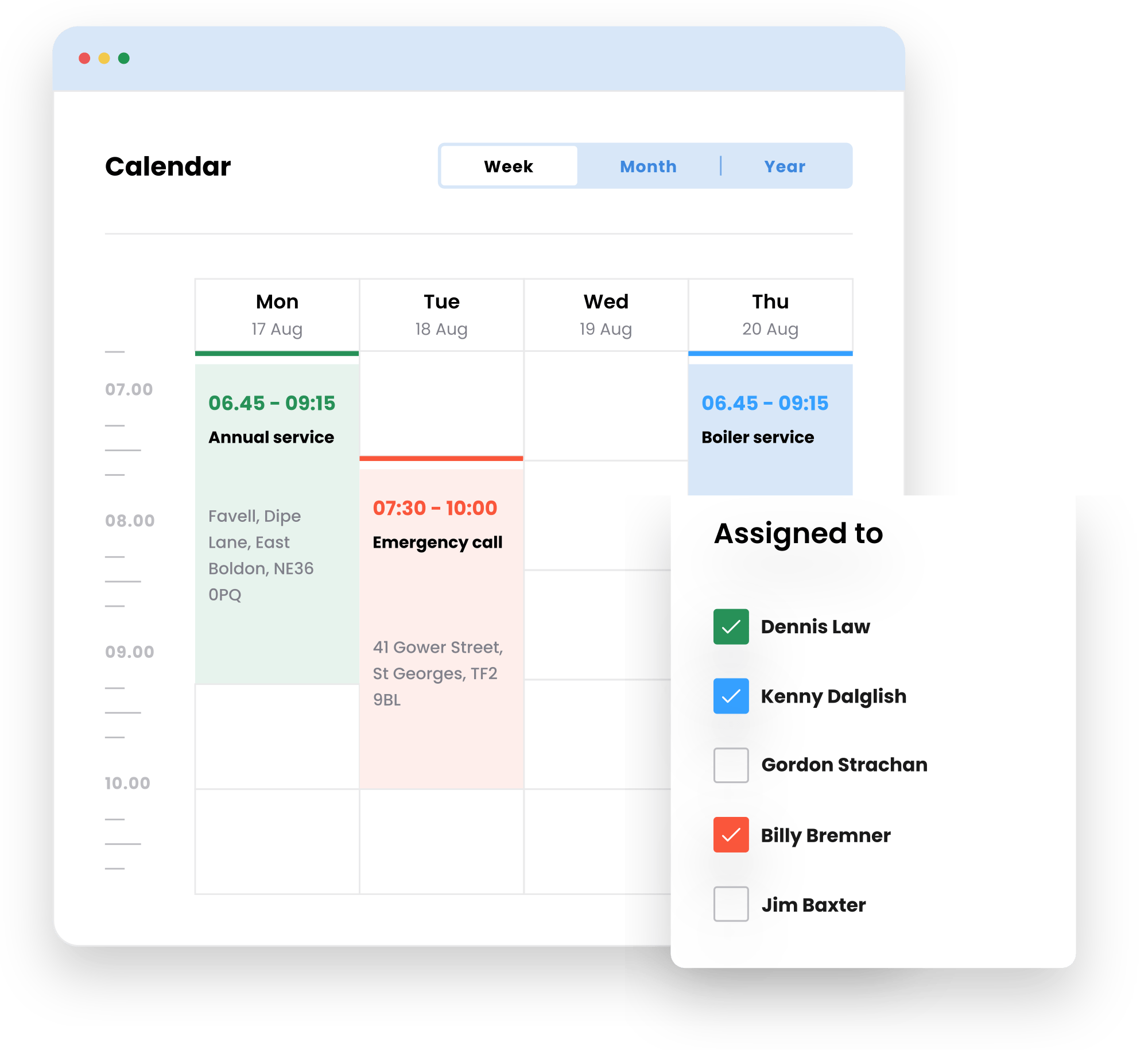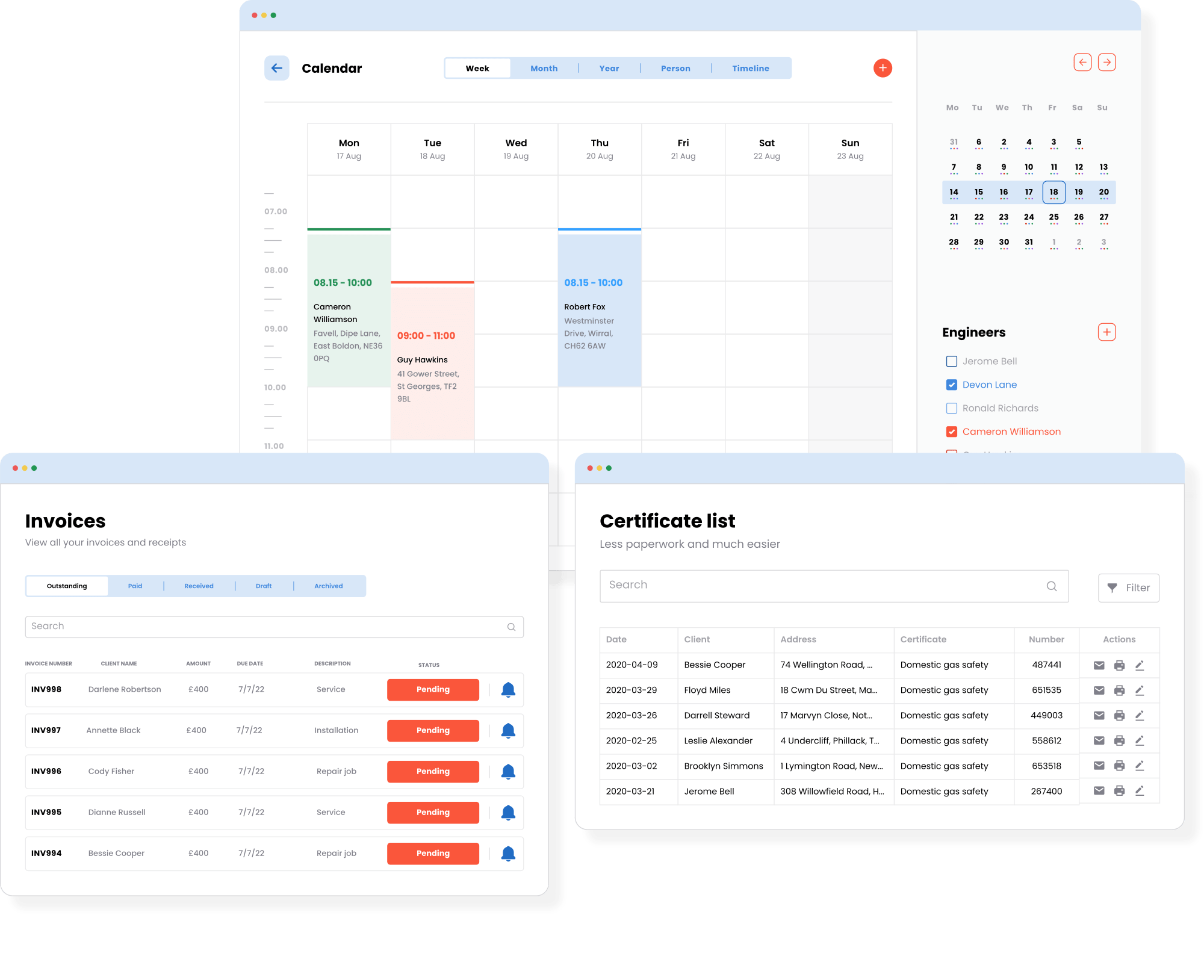How To Get Off The Tools: 3 Tips For Tradespeople
![[Featured Image] Going off the tools](https://fieldrocket.com/wp-content/uploads/2024/07/Featured-Image-Going-off-the-tools.png)
At one point or another, every successful trades business owner needs to decide whether they want to keep working jobs or get off the tools.
For many, there is a natural progression as the business grows. With more engineers on the tools and more admin staff to handle the day-to-day, you’re free to lean into more of an ‘owner’s’ role and focus on the business side of things.
But going off the tools does require a level of freedom that is the payoff of years of hard work. We recently spoke to Joshua King from KK Electrical – an up-and-coming electrical contractor business based in London. Despite only being 23 and having run his business for a few years, Josh is now entirely off the tools and works with a team of more than 20.
We sat down and spoke to him to work out how he’s managed this feat and what he has to share.
From humble beginnings to manager of 20

Joshua started as an electrical contractor working on odd jobs. “I was working directly for people just as a subbie,” he explains. It wasn’t before long that he managed to get on some bigger contracts and cobble together a small-scale business with a friend: “Slowly but surely I started to understand running a business even though it was only small – even though I only had one person working with me.”
A few years later, his company has grown tenfold. “I currently have a team of about 15 to 20 people. Some are subcontractors and some work for me directly.” Despite his modesty, this feat can’t have come easy – especially in such a competitive industry with so many others gunning for the same jobs.
Part 1: Letting go of pride & keeping a good mindset
For Josh, a big part of this early transition from apprentice & contractor to business owner was down to his mindset. “You should always try and ask as many questions as you can for things you don’t understand. You don’t need to be prideful,” he explains.
“Sometimes I used to cut corners… I was so eager from young just to go to the next job and be quick.” But he soon realised it’s better to take the time to do it right and learn things the proper way – and this mindset carried over to learning how to manage and grow his business.
If you plan yourself well, do stuff properly by the books, no matter how long it takes, you’ll be alright. And ask for help – “That’s the biggest thing.”
Part 2: Making hires & building a company culture
There’s no doubt about it – finding the right people is difficult.
For Joshua, the most important things are that “[they] ask a lot of questions, [they’re] passionate, [they’re] in on time, and [they] show the willingness and desire to learn.”
This follows through to his entire team, including subcontractors: “Subcontractors or agency workers…they’re kind of looked upon like they’re not really part of the team.”
Developing a company culture and a place where people truly enjoy working is pivotal to any trades business, particularly where people work closely together on projects.
“Even the subcontractors that come and go – we also make sure that they’re part of the family…You’ve got to learn how to be there for people and talk to people because it goes a long way.”
Part 3: Finding the work
As the business grows, so will your role. For Joshua, now working with a team of more than 20, his job is now to make sure everyone has enough work. But if there’s one thing London has a lot of, it’s competition.
In the early days, he shared his strategy of calling up agencies to ask who the main contractor is on a specific project. He would then get straight in contact with them. “They want people to be held accountable,” he explained, and agencies can’t offer that in the way individual contracting businesses like his can.
“I believe in being held accountable [because] I know that we’re going to do a good job. If there’s any issues we will sort them out and ultimately we can build longer-lasting relationships.”
Over time, this built up into a string of referrals, recommendations, and bigger contracts: “They’ll then tell their friends “oh yeah that Josh guy – you know his company’s all right!”
“In this game, it’s definitely who you know.”
Getting off the tools
“There’s a difference between being an electrician and running the business.”
This is a realisation that every trades business owner makes at some point. It’s not surprising, either: controlling budgets, organising invoices, payroll – these are all things a business owner needs to juggle. “But it is quite fun, if I’m being honest with you because it does allow me to step away from the tools.”
But learning how to get off the tools and step away takes people you can trust completely. “It’s easy enough to put anyone on a job that’s an electrician or a plumber. But if they’re not being sensible and hitting deadlines, it’s going to ultimately affect you.”

Joshua now has a core team of full time employees who help him manage more junior staff and apprentices.
“You need to delegate people that you know you can trust. People that you know are going to be in on time, people you know that are going to be your eyes and ears. They’re literally going to be a form of you but at the job.”
At this point, he doesn’t need to be there at all. But the transition wasn’t something which he tried to force. Instead, it was a natural transition of his role based on what he enjoyed and is good at. “It just comes down to you as a person and at the end of the day, I feel like you let stuff happen organically.”
How we can help

In today’s world, tradespeople need all the resources and tools they can get to keep their business competitive and ahead of the game.
Job management software is rapidly becoming the norm for UK service businesses by helping them reduce the burden of paperwork, save time, and look more professional.
If you’d like a more efficient way of looking after your customer’s details and creating digital forms certificates, get started with a free trial of FieldRocket.
Next steps:
If you’ve been thinking about implementing software into your workflow to save time, here’s what you can do next:
- Visit our resources centre where you'll find more articles like this one and a full list of our certificates.
- Start a free trial to see exactly how our software works for your business.
- Book a demo with our customer success team. We’ll help walk you through the ins and outs of our software, how it’ll help you save time and money, and anything else that springs to mind.
- Know someone still using paper? Help them and us out by sending our software their way!

